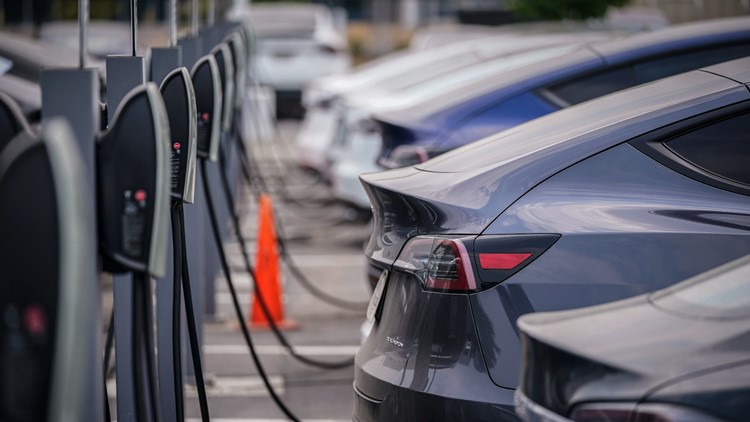
In 2024, significant changes to the Electric Vehicle (EV) tax credit rules have taken effect, shaping the landscape for potential buyers. (Photo: Verifythis)
Major Shifts in EV Tax Credit Eligibility and Claim Options
In 2024, significant changes to the Electric Vehicle (EV) tax credit rules have taken effect, shaping the landscape for potential buyers. The Inflation Reduction Act of 2022 has led to a transformation in the kinds of tax credits available to those purchasing electric vehicles in the United States. This act, signed by President Biden in August 2022, introduces alterations that impact taxpayers aiming to acquire certain new or used electric vehicles or plug-in hybrids. Taxpayers may now be eligible for a federal income tax credit of up to $7,500 until 2032, providing an enticing incentive for environmentally conscious vehicle purchases.
The alterations to the EV tax credit in 2024 have stirred significant curiosity and provoked an abundance of online searches. Consumers must understand the modifications and discern which EVs qualify for this newly revised tax credit. While the previous offering involved claiming the credit on their tax return, starting from January 1, 2024, eligible buyers gain the choice of receiving an instant EV tax rebate when purchasing qualifying vehicles, rousing further interest and participation in the program.
These developments can be verified through a range of trusted sources including the Inflation Reduction Act of 2022, the U.S. Department of the Treasury, the Internal Revenue Service (IRS), FuelEconomy.gov, Consumer Reports, H&R Block, Kelley Blue Book, Kiplinger, Plug In America, and NerdWallet.
READ ALSO: North Carolina Lottery Winner Loses Over $28,000 In Taxes: A Bittersweet Windfall
In addition, the clean vehicles tax credit, alternatively referred to as the electric vehicle tax credit, has served as a crucial motivator for buyers of eligible fuel cell electric (FCV), plug-in hybrid (PHEV), or all-electric (EV) vehicles in the United States. Eligible taxpayers may assert a maximum credit of $7,500 on new electric vehicles (EVs); further alternatives are accessible for used EVs following the regulations set forth by the Inflation Reduction Act.
Online queries continue to highlight the heightened interest in understanding the shifts in EV tax credit rules, underscoring the importance of comprehensive verification and understanding. These changes present new opportunities for those looking to invest in electric vehicles, offering renewed incentives and credit claim options for environmentally-friendly transportation choices. The updates cater to the evolving needs of consumers and provide accessibility, encouraging further adoption of clean vehicle technology.
READ ALSO: Verizon Settles Lawsuit, Customers Eligible For Cash Payout
























